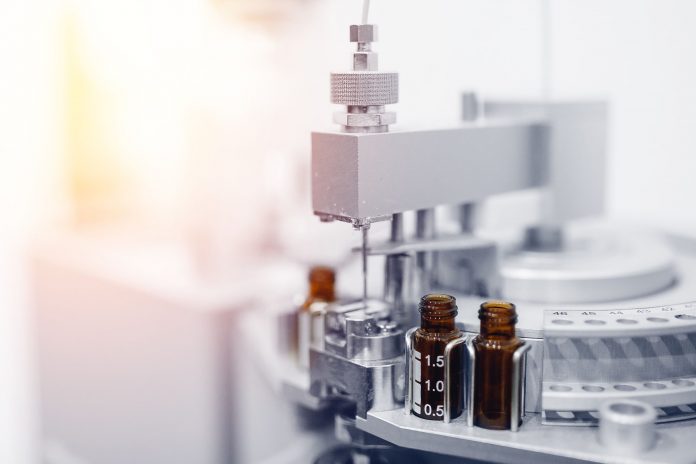As new Covid-19 cases continue across the U.S., many states are preparing for a potential second wave of outbreaks and reinstated lockdown measures. Arizona hospitals are enacting emergency plans to accommodate a rapid influx of new infections. Florida has ordered bars to stop serving alcohol (after allowing them to reopen less than a month ago). Texas Governor Greg Abbot has stopped all reopening phases, ordered bars to close (again), and reinstituted stringent size limits on public gatherings.
But not all recent developments are bad news.
New Covid-19 cases have yet to cause a nationwide peak in daily hospitalizations and fatalities. Antibody tests, although susceptible to false positives, indicate the number of Covid-19 cases and recoveries is underreported. These findings provide comfort in uncertain times.
But similar analyses also find a concerning and often overlooked aspect of the pandemic: recovery time. Many patients with pre-existing conditions can spend weeks in the hospital before being healthy enough to leave, as noted in Yale Medicine. Even after Covid-19 patients are discharged, “an estimated 20 to 50% of patients continue to face health challenges.”
Fortunately, a drug named remdesivir effectively reduces recovery times for patients suffering from Covid-19. Research published in the prestigious New England Journal of Medicine found remdesivir was particularly useful in helping patients discharge from hospitalizations more quickly, reducing the risk of hospitals exceeding capacity.
Although the drug has received noteworthy praise for its medicinal benefits, it has also been the source of controversy. In early May, remdesivir received emergency use authorization by the Food and Drug Administration to help combat the pandemic. At the time, drug developer Gilead Sciences primarily donated remdesivir to the federal government. Nearly two months after receiving approval Gilead began selling the drug to the U.S. government for $390 a vial (an ordinary course of treatment takes about five vials). Gilead charges even higher prices to private organizations ($520 per vial).
Remdesivir’s price hikes have been called “outrageous” and “an offensive display of hubris and disregard for the public.” Noting Gilead’s history of raising drug prices during health crises, some critics have called on the government to resolve this drug-pricing problem.
To address these concerns and to help battle the ongoing pandemic, the federal government recently bought more than 500,000 doses of remdesivir to distribute across the United States. This purchase constitutes all of the available doses produced by Gilead this month and 90 percent of the expected production in August and September.
Offering praise for President Trump’s decision to mass purchase remdesivir, Health and Human Services Secretary Alex Azar stated, “President Trump has struck an amazing deal to ensure Americans have access to the first authorized therapeutic for Covid-19.”
Azar also said:
To the extent possible, we want to ensure that any American patient who needs remdesivir can get it. The Trump administration is doing everything in our power to learn more about life-saving therapeutics for Covid-19 and secure access to these options for the American people.
Considering the federal government’s recent failures to provide hospitals and pharmacies with remdesivir, buying up as much of the drug as possible seems like a winning strategy.
Unfortunately, the problem at hand has less to do with the number of goods to distribute and more to do with who distributes them.
When the Covid-19 pandemic reached the United States, the only available Covid-19 testing kits were those developed and provided by the federal Centers for Disease Control and Prevention. Not only did the agency under provide testing kits, but many of the kits it distributed were faulty due to a manufacturing error. In addition, rules enacted by both the FDA and CDC limited which laboratories were allowed to process Covid-19 tests, restrictions which led to long waiting periods to receive a diagnosis. Both factors resulted in the United States only being able to perform 1,235 Covid-19 tests during the first month of the pandemic, whereas other countries were able to complete millions of tests during a comparable period of time.
The testing fiasco is far from the only example of the government’s mishandling of healthcare equipment. In late March, hospital workers struggled to obtain enough medical masks to avoid infection as Covid-19 hospitalizations escalated. Inexplicably, the U.S. government offered a stockpile of 1.5 million respirator masks to the Transportation Security Administration during a time when commercial air travel had decreased by nearly 55 percent.
In another blunder, President Trump sent a Navy hospital ship with 1,000 beds to dock in New York City while hospitals became overwhelmed with Covid-19 patients. A month later, the ship returned to Virginia after only treating 182 patients. While docked, the vessel was so underutilized that it changed its mission from accepting only patients not infected by Covid-19 to accepting any patients from hospitals suffering overcapacity.
The complex and quickly changing course of a pandemic requires adaptation and decentralized decision making that government is rarely able to provide. Therefore, as I have argued before, our best hope for putting drugs and other medical goods to their best use is to allow competition and private enterprise to find solutions.
In the problematic case of high-priced remdesivir, it seems markets are already working effectively in foreign markets. To “undercut rivals,” a drug producer named Cipla released a generic version of remdesivir called Cipremi in India, all for a comparatively moderate price of about $53 per vial.
The Covid-19 pandemic has caused immeasurable hardship. Putting a reliable treatment method like remdesivir into the mistake-prone hands of the government is dangerous and unwarranted. As Covid-19 seems to be making a comeback, let us learn from our mistakes and give markets a chance.
